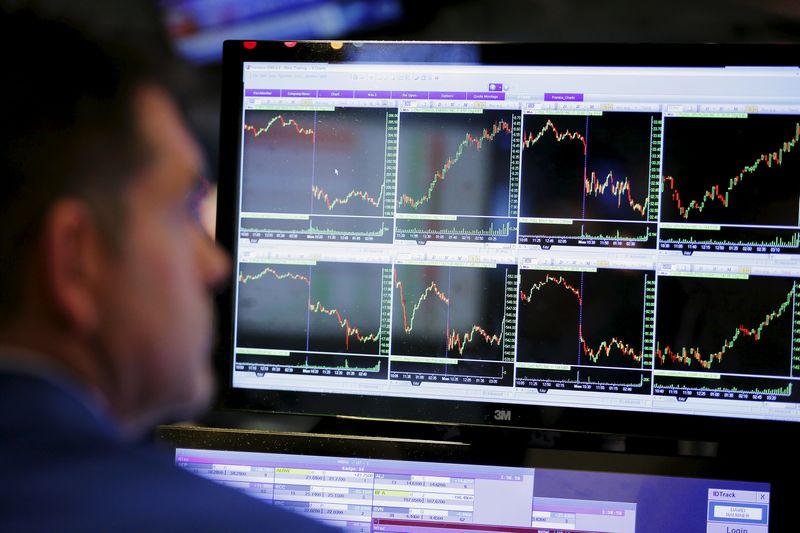Investing.com - Here are the top five things you need to know in financial markets on Friday, August 9:
1. Chinese, U.K. data fan global slowdown fears
Weak economic data from China and the U.K. revived fears for the health of the global economy.
Overnight, China's factory gate prices shrank for the first time in three years in July, adding pressure for Beijing to increase economic stimulus amid the ongoing trade war with Washington.
Indicators of growth showed a mixed read as the U.K. economy registered a contraction of 0.2% in the second quarter, its worst performance since 2012.
One upside surprise was that Japan’s gross domestic product registered much-stronger-than-expected growth in the second quarter, chalking up its best first half reading in two years.
Nevertheless, analysts warned that the data did little to boost optimism over the country’s exports in the face of trade tensions and a pending tax hike.
The Labor Department will release its July producer price index (PPI) at 8:30 AM ET (12:30 GMT) Friday. Factory gate inflation has been on a downward trend since July, but is forecast to remain unchanged at an annual rate of 1.7%.
2. U.S. futures drop as reports show no progress on Huawei
U.S. futures pointed to a lower open as markets remained cautious in the face of the ongoing trade impasse between Washington and Beijing.
Bloomberg reported overnight that the U.S. is holding off on giving permissions to U.S. companies to resume business with Huawei.
The news comes after China put a halt to the importing of American agricultural products, days after the U.S. officially labeled China a currency manipulator.
Providing some support in the tech sector, chipmaker Broadcom (NASDAQ:AVGO) announced that it will buy an enterprise security unit from Symantec (NASDAQ:SYMC) for $10.7 billion, an announcement that comes after the breakdown of talks for a full merger between the two.
3. Uber disappoints as earnings season winds down
Shares in Uber (NYSE:UBER) sank around 8% in premarket trade after the company reported a $5.2 billion loss, its biggest ever and far bigger than expected.
Although the company agreed with rival Lyft (NASDAQ:LYFT) that the price war in the U.S. was easing, growth in its core ride-hailing business slowed.
Earnings season is drawing to a close with 451 of the S&P 500 firms having already reported by Thursday.
73% of those firms have topped profit expectations on 4.2% growth while 59% have beat on sales growth of 5.4%, according to The Earnings Scout. These analysts calculated that the new blended growth estimate for the second quarter is 3.3%, defying expectations of a drop in earnings in the quarter.
4. European election issues weigh on sentiment
Italian stocks led declines in Europe after the country’s Deputy Prime Minister Matteo Salvini called for new elections that would put an end to his Lega party’s coalition with Five Star Movement.
Italian bank stocks sank on the news, while the yield on the Italian 10-year bond jumped above 1.8% pushing its spread with the safe-haven German Bund up to more than 200 basis points.
Election fears were also high in the U.K. as the country continues to stumble toward a disorderly departure from the European Union set for Oct. 31.
Reports had already surfaced Thursday that Prime Minister Boris Johnson is potentially planning a general election in early November, days after the scheduled Brexit date.
5. Oil holds higher despite gloomy IEA report on demand
The International Energy Agency once again cut its forecast for oil demand growth this year and 2020 in its latest monthly report, citing the weaker prospects for the global economy.
The agency indicated that demand so far in 2019 has grown at its slowest pace since 2008.
Oil traded higher even so, supported by continued speculation that Saudi Arabia will work with other suppliers to further reduce supply in the face of price declines.
Read more: Is Time On OPEC's Side to 'Save' The Oil Market? - Barani Krishnan
-- Reuters contributed to this report.
